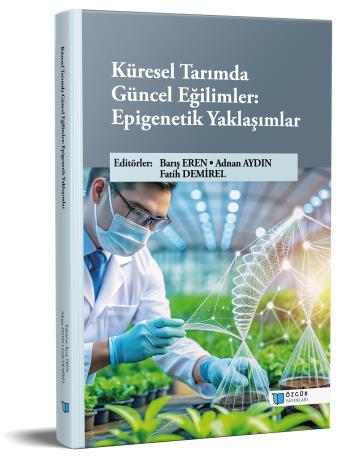
Epigenetic Mechanisms: DNA Methylation, Histone Modifications, RNA-Based Regulations
Chapter from the book:
Eren,
B.
&
Aydın,
A.
&
Demirel,
F.
(eds.)
2025.
Current Trends in Global Agriculture: Epigenetic Approaches.
Synopsis
Epigenetics encompasses mechanisms that regulate gene expression without altering the DNA sequence and plays a central role in plants' adaptation to stress conditions. DNA Methylation: CpG islands, methyltransferase enzymes, gene silencing, transposon suppression, and its role in stress tolerance are discussed. It is explained with examples that methylation profiles change under stresses such as drought, salinity, and ozone, and that this can be reflected in adaptation and even intergenerational inheritance. Histone Modifications: It is emphasized that changes such as acetylation, methylation, phosphorylation, and ubiquitination regulate gene expression through chromatin structure. The critical role of histone modifications in processes such as flowering, seed development, root formation, and stress responses in plants is noted. RNA-Based Regulations: It is highlighted that molecules such as miRNA, siRNA, and lncRNA control gene expression at the post-transcriptional level and interact with DNA methylation, particularly via the RdDM pathway. Examples such as tomato fruit ripening and drought tolerance in wheat are provided.
In conclusion, epigenetic mechanisms are seen to be decisive in plant biology in terms of development, stress response, and product quality, and targeted epigenetic regulation using tools such as CRISPR/dCas9 shows promise for agriculture. Furthermore, research gaps such.

